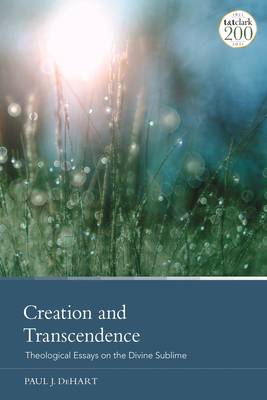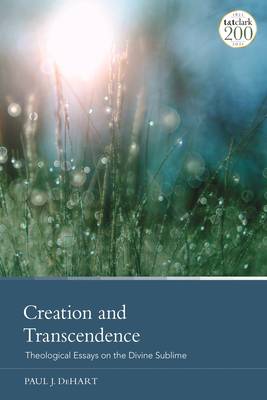
- Afhalen na 1 uur in een winkel met voorraad
- Gratis thuislevering in België vanaf € 30
- Ruim aanbod met 7 miljoen producten
- Afhalen na 1 uur in een winkel met voorraad
- Gratis thuislevering in België vanaf € 30
- Ruim aanbod met 7 miljoen producten
Zoeken
Creation and Transcendence
Theological Essays on the Divine Sublime
Paul J Dehart
Paperback | Engels
€ 72,95
+ 145 punten
Uitvoering
Omschrijving
This is a creative scholarly argument revisiting the substance, understanding, and implications of the doctrine of creation ex nihilo for contemporary theology and philosophy.
Paul J. DeHart examines the special mode of divine transcendence (God's infinity) and investigates areas where accepting an infinite God presents challenging questions to Christian theology. He discusses what "saving knowledge" or "faith" would have to look like when confronted by such an unlimited conception of deity, and ponders how the doctrine of God's trinity can be brought into harmony with radical notions of transcendence, as well as ways the doctrine of creation itself is threatened when the radical otherness of the creator's mind is not maintained. DeHart engages with a diverse range of figures: Jean-Luc Marion, Schleiermacher, Kierkegaard, Kathryn Tanner, John Milbank and Rowan Williams, to illustrate his conviction. This volume deals with deep conceptual issues, indicating that creation ex nihilo remains a lively topic in contemporary theology.Specificaties
Betrokkenen
- Auteur(s):
- Uitgeverij:
Inhoud
- Aantal bladzijden:
- 304
- Taal:
- Engels
Eigenschappen
- Productcode (EAN):
- 9780567698742
- Verschijningsdatum:
- 17/11/2022
- Uitvoering:
- Paperback
- Formaat:
- Trade paperback (VS)
- Afmetingen:
- 156 mm x 234 mm
- Gewicht:
- 426 g

Alleen bij Standaard Boekhandel
+ 145 punten op je klantenkaart van Standaard Boekhandel
Beoordelingen
We publiceren alleen reviews die voldoen aan de voorwaarden voor reviews. Bekijk onze voorwaarden voor reviews.







